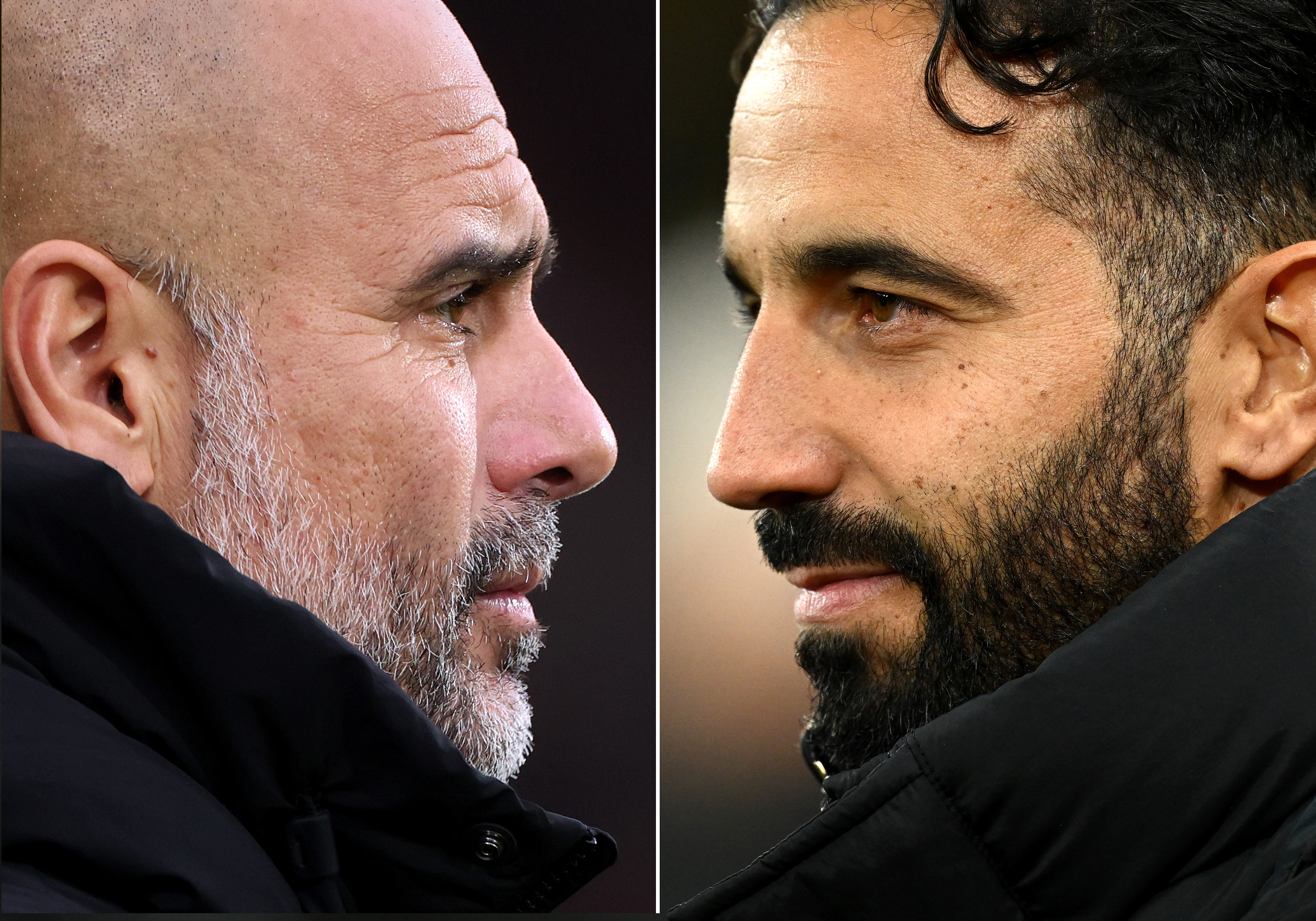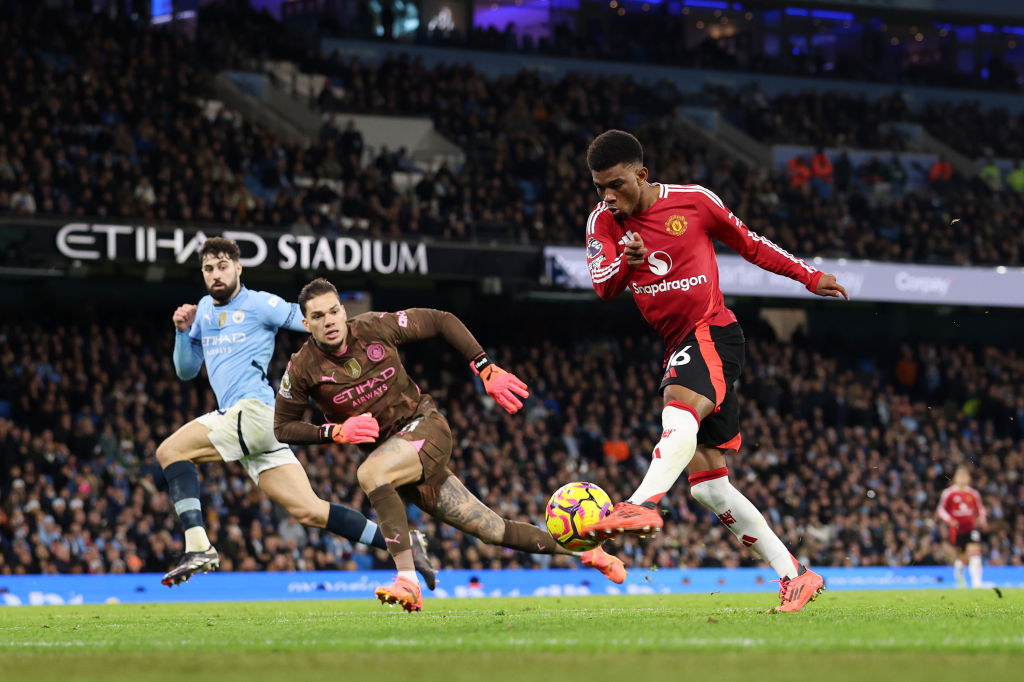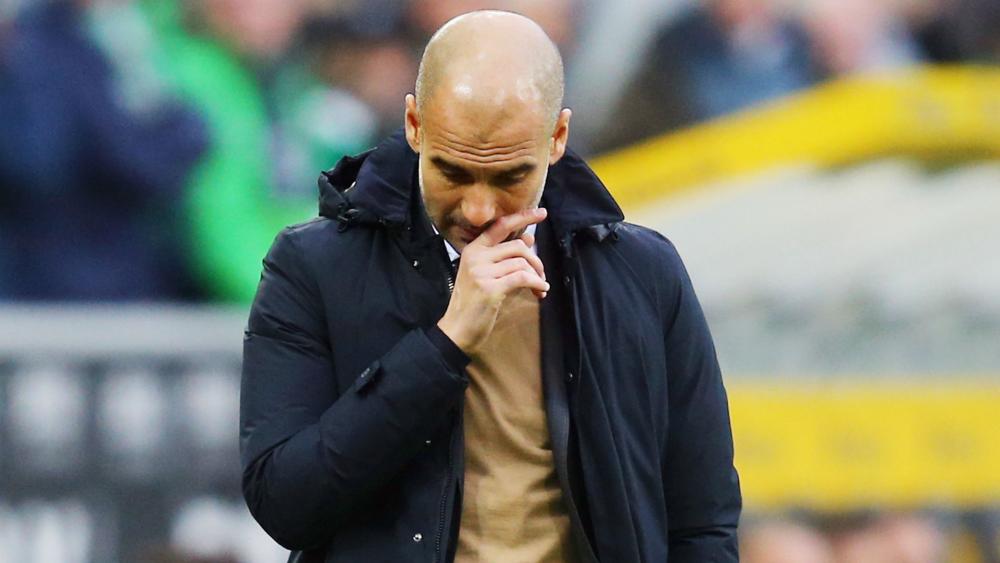
Down in the Etihad’s bowels there lies a room. With capacity to hold 100 or so folk, it is about function not glamour. Every football ground has a variation of the same space, and after each match, a pair of contractually obligated managerial types enter via a side door flanked by a largely silent, usually suited, club employee.
Largely banal queries are then posed until said club employee decides enough is enough. Usually, the answers given are in equal measure predictable and bland. And so, it continues, match-after-match. No one really knows why. It just is.
But occasionally, very occasionally, those post-game exchanges shine a revealing light on what football is and what it means. On Sunday, after the 195th Manchester derby, the world glimpsed the two ends of the managerial spectrum.
The Manchester Derby was a tale of two bosses

First, in the red corner, entered Ruben Amorim sporting beige chinos and spotless snow-white trainers. Half an hour earlier, he had watched his Manchester United side turn what looked, with a few minutes remaining, like a slender-yet-honourable defeat into a slender-yet-potentially-defining victory.
Amad Diallo’s winning goal was met with an old-school pile on in front of Amorim’s technical area, the type that, in a pre-health and safety world was a staple of concrete playgrounds.
AMAD DIALLO PUTS MAN UNITED AHEAD IN THE 90TH MINUTE! 🌟 pic.twitter.com/Q3I684gEDzDecember 15, 2024
Lisandro Martinez was on the bottom, rolling around gleefully after his clipped pass had set up Diallo. It was joyous.
A few minutes later, the final whistle went. But as his name rang out from a delirious three-tiered away end, Amorim was long gone. After a firm shake of Pep Guardiola’s hand, he had whizzed back to United’s dressing room before Manchester City’s Tunnel Club staff had put out the post-match brie.
Amorim knows there is much work still to be done, and desperately needs time on the training ground. As it is, he is attempting to micro-manage his players through every step in real time. Given the pace of a Premier League game, that is akin to standing on a motorway bridge and trying to direct traffic in and out of lanes.
Anyway, Amorim breezed in the room, a lightness of foot, a softness of movement. He smiled. He made eye contact. He fielded questions smartly, answering them directly but still managing to say exactly what he wanted to say. The decision to leave Marcus Rashford and Alejandro Garnacho not just out of the starting XI, but out of the travelling squad completely was “not disciplinary” he told reporters.
“Next week, next game, new life, they are fighting for their places. But for me it is important the performance in training, the performance in games, the way you dress, the way you eat, the way you engage with your team-mates, the way you push your team-mates.
“Everything is important in our context in the beginning of something when we want to change a lot of things, when people in our club are losing their jobs, we have to put the standards really high.”
Amorim was adamant it was not a statement selection, just a selection. But the message was clear. What went before will no longer suffice. Buckle up. “A lot of players here are improving, are fighting, are working really hard, are suffering,” he added. “And that is a good thing, when you suffer for something.”

Then, as he was about to leave, Amorim fielded the trickiest question of them all. 48 hours before the game, United’s team was leaked on social media. Amorim grinned again. “I know that story,” he said. “I think it's impossible to fix nowadays. Because you have a lot of people in the club.
“It's not a good thing. But let's move on and go to the next one. And see if they find the next starting eleven.” And with a glint in his eye, Amorim departed. It was a word-perfect performance. Bravo.
And then came Pep. At least it looked Pep, smelt like Pep and sat in Pep’s seat. It sort of moved like Pep But it was not Pep, not really, not as we know him. Not the all-conquering, #fourinarow, treble winner. It was the ghost of Pep past, and it was not easy to watch.
"I'm the boss, I'm the manager and I'm not good enough."Pep Guardiola in his post match press conference after the Manchester derby defeat 🎙️ pic.twitter.com/EUOW1Yr5RmDecember 15, 2024
“I'm the boss, I'm the manager and I'm not good enough,” he told reporters. Wait, what? No, he didn’t just say that - did he? But Pep repeated it. “It's as simple as that. I have to find a way to talk to them about the way we have to play and press and build up and I'm not good enough.”
Six titles; two FA Cups; four League Cups; the Champions League. ‘If that guy isn’t good enough, who is?’ thought the room.
Only a month-and-a-half back, Guardiola reminded everyone, City were Europe’s only unbeaten side. But this was not the type of bullish, brash Pep statement that had accompanied previous defeats. When Tottenham humbled City a few weeks back, Guardiola was still swinging hard. He pointed to injuries, he pointed to previous success as if that would guarantee future performance.
There was none of that now. This was a man struggling with his own footballing mortality, a manager with all the questions but, as yet, no answers.

“Eight out of 11,” he kept repeating, as if saying it would somehow make an unprecedented number of modern-era City defeats go away.
Then came enquiries that would have felt unthinkable six weeks ago. Does he still believe he can turn it around? Will he see out the two-year contract extension he recently signed? “This is a big club; the club of course cannot accept it. I'm still here sitting here in the press conference because of what we have done in the past.
"I want it desperately. With eight defeats in 11, but I'm here to try and I will try again and again."
While Guardiola’s words were in themselves, at least in a footballing context, shocking, the way that they were delivered - the dejection, the pauses, the sighs - were even more worrying. Only those with the coldest of blood would not have felt a little sympathy for a man who looked like tears could arrive at any moment.
And that, in a nutshell, is football. It can break the unbreakable, take shatterproof rulers and smite them into a thousand plastic shards.
Two men came in the same door, sat in the same chair and left the same way. But those two men are in very different headspaces.







